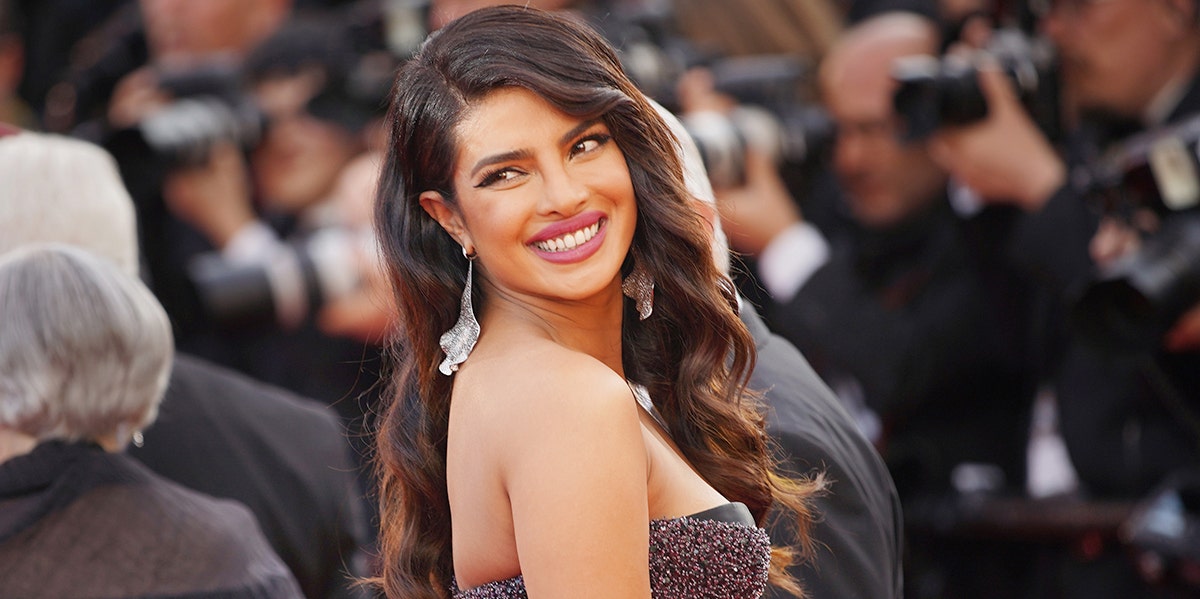How I Was Able To Heal My Wounds Caused By Racist Bullying — In The Same Way Priyanka Chopra Did
Childhood racist bullying is not uncommon.
 Denis Makarenko / Shutterstock
Denis Makarenko / ShutterstockPriyanka Chopra has always been known for killing the game.
From winning the 2000 Miss World pageant, to being one of India's highest-paid and most popular entertainers, she is an icon for success, beauty, and confidence.
However, it wasn’t always like that for her.
In her new upcoming memoir, Unfinished, Priyanka Chopra talks about the racial bullying she faced as a teenager while going to high school in America.
Teenage girls would yell insults like, "Brownie, go back to your country!" and, "Go back on the elephant you came on!" at Priyanka as she walked down the hall.
RELATED: How Frankie Jonas, AKA The 'Bonus Jonas Brother', Is Paving His Own Path To Fame On TikTok
In an interview published on Jan. 20, Priyanka says “I took it very personally. Deep inside, it starts gnawing at you. I went into a shell. I was like, 'Don't look at me. I just want to be invisible. My confidence was stripped. I've always considered myself a confident person, but I was very unsure of where I stood, of who I was."
Priyanka ended up finishing up her high school education back home in India, where she regained her confidence in herself and rose to become a successful Bollywood star.
Priyanka’s experience is not uncommon.
According to the American Psychological Association (APA), more Asian-American students (11 percent) reported being frequently targeted with race-related hate words than was reported by White students (3 percent).
And currently, 1 in 4 Asian-American youths will experience race-based bullying fueled by former President Donald Trump's racist rhetoric, such as calling the coronavirus the "China virus" and "kung flu."
We know that racist bullying can have long-term negative effects on a students’ physical and mental health, their school attendance and their educational attainment, but so many young people of color face the challenge of racist bullying.
As a woman of color, I can relate to Priyanka’s experience of racial bullying as a child completely.
While my experience was not exactly the same, being a young woman of color in a very white school is very isolating.
As a child, everyone in my school had straight, glossy hair, while I was always made fun of for my curly, wavy hair.
At one point, the bullying was so bad, I decided to take a pair of scissors and cut my curly front baby hair. I was left with two bald spots for months and had to wear a headband to cover it up.
The bullying made me hate my identity and affected my mental health for a while.
I was also called the “Fake Filipino” or “Fake Spanish girl” because I didn’t look the part or speak the languages.
It was hurtful, because it made me feel like I didn’t belong in my communities. Eventually, the bullying got so bad that I had to transfer out of the school.
However, like Priyanka Chopra, I was able to heal the wounds caused by racist bullying and gain confidence in my identity through time.
"I just think it was girls who, at that age, just want to say something that'll hurt," explains Priyanka Copra. "Now, at the other side of 35, I can say that it probably comes from a place of them being insecure. But at that time, I took it very personally."
Racist bullying shouldn’t be seen as a “phase” that makes young people of color “stronger” as they get older — it’s a symptom of the larger problem: racism.
As early as 6 months, a baby's brain can notice race-based differences and by ages 2 to 4, children can internalize racial bias.
Race is something that is very much noticeable and a part of youth’s lives.
However, America’s education system is typically centered on whiteness and does little to teach about Black, Asian-American or Latin-American history.
Furthermore, the representation of teachers in the U.S. education system has little diversity, even though publics schools are now "more diverse than ever."
Thankfully, there are more and more efforts to implementing anti-racist education.
But we can’t stop there.
Teaching young people more Black, Latinx and Asian-American history, along with offering the space for conversations of race in today’s context, may actually be the key to stop childhood racist bullying.
Priyanka Chopra’s new memoir certainly touches on her success, but also touches on the reality that many young people of color face.
It’s time we stop thinking of childhood racist bullying as something we grow out of because of its damaging effects.
We need look to solve the problem before it gets worse.
Angelique Beluso is a sex educator and writer who covers feminism, pop culture and relationship topics.

